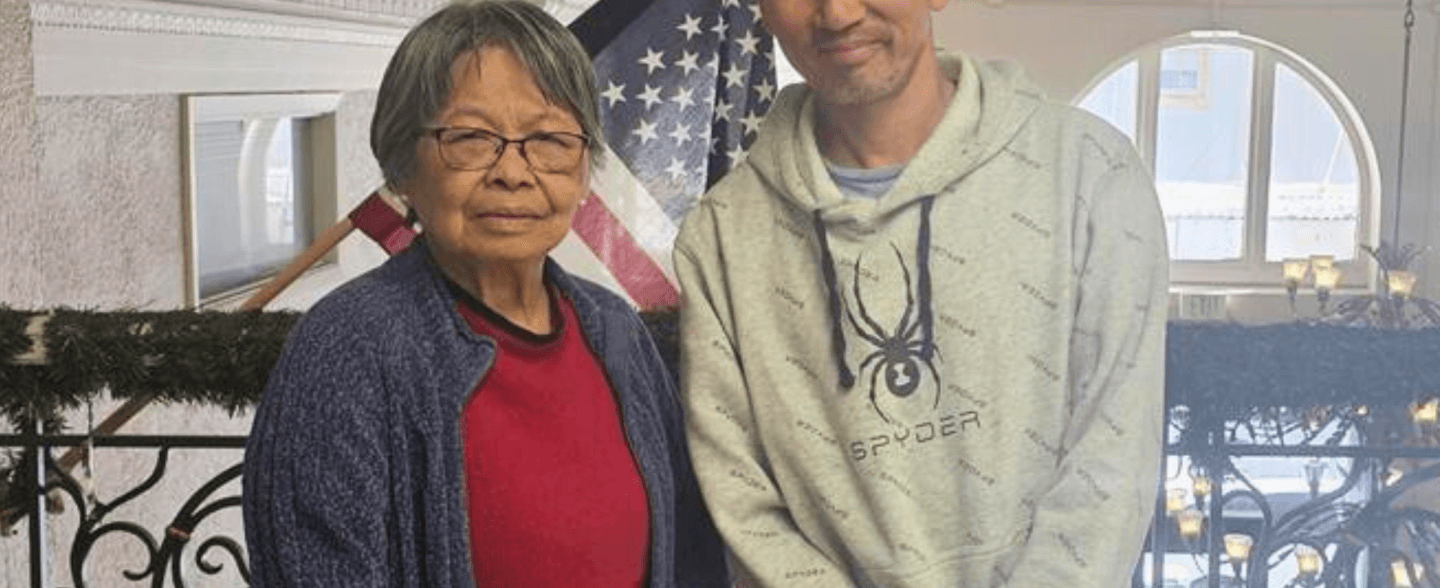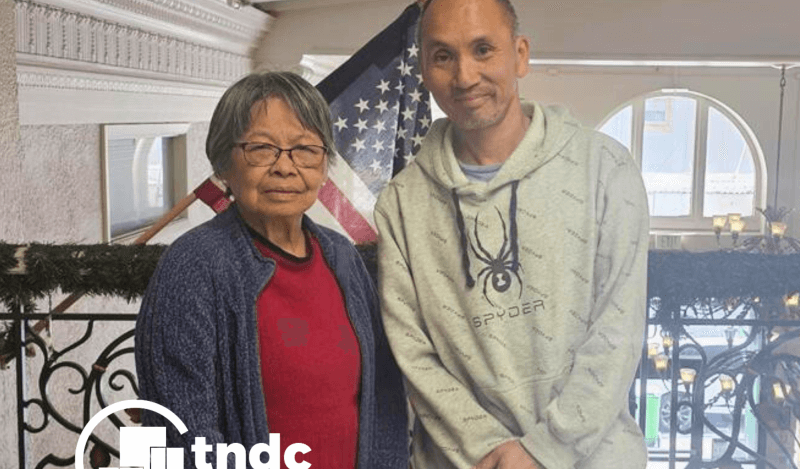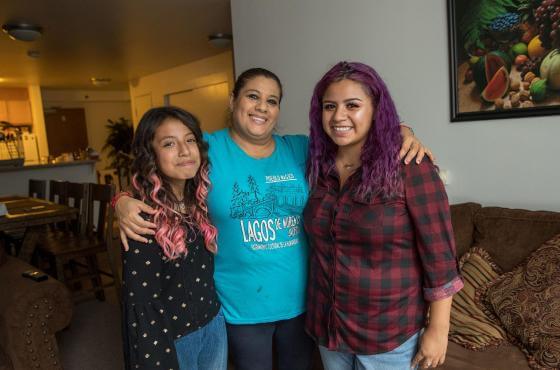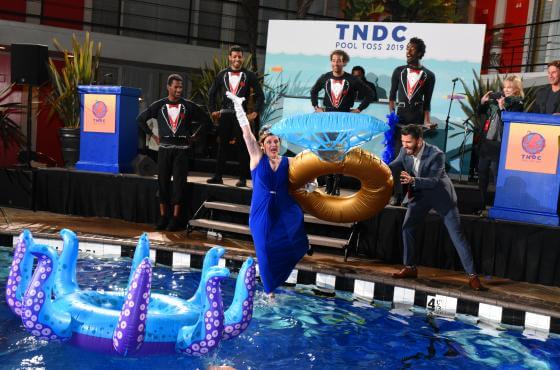As a leader in supportive housing, TNDC provides onsite social workers in every housing community across our portfolio. Paul Chen and Beatrice Duran, longtime TNDC social workers, support residents at the Alexander Residence, a single room occupancy building that is home to a predominantly elderly Asian population. Between them, they represent 37 years of dedication to the residents of the Alexander, Paul with 17 and Beatrice with 20. Beatrice is actually the longest-serving social worker at TNDC. In this interview, the pair shares insights about their years of service and their roles as linguistic and cultural bridges, helping TNDC residents navigate the experiences of affordable community living.
Q: From your many years at TNDC, what would you say has been one of your proudest accomplishments?
PAUL: Because we are onsite social workers, we provide housing retention services, we support and help our tenants, and we touch people's lives. We just try to make their life change for the better. That's my happiness.
BEATRICE: This is a senior building, so it makes me grateful to have this opportunity to provide service to people in the sunset of their lives; and in this building, there's a diversity people of different backgrounds, and so it provides for me different settings or different experiences.
Q: Talk a little bit about your partnership and why it's important to have support together in this setting?
BEATRICE: I don't have a clinical background in mental health, so I always go to Paul for help, and he is good at it. Both mental health benefits and mental health issues, they provide, you know, challenges, but challenges that you learn so much from. Paul’s experience working in a mental health clinic has been invaluable in helping me navigate these situations.
PAUL: Betty is really supportive and provides me guidance from her experience. As a new social worker, back in the day, I really got a lot of support from her because of her case management experience. So, we share our strengths together to make the building succeed.
Q: What are some of the biggest challenges faced by your residents?
BEATRICE: Many of clients who are from the Philippines, of course, come to me, and I think it's because of the common culture. I'm able to provide them with that service that they need in a way that is comfortable. They can approach me very easily. I come from the same part of the Philippines as many tenants here so there is a lot of commonality.
PAUL: I am Chinese speaking and this site, the majority cases, are Chinese, and they speak Cantonese, so I can provide language help so they can easily access resources. And because we are working for seniors with disabilities, a lot of clients may need additional supportive services, so we will provide a referral to In-Home Supportive Services (IHSS.) Every Monday, we have a produce drop, so we provide food support, and we coordinate with San Francisco-Marin Food Bank. We have been doing this for many years and tenants are really happy to receive fresh produce.
Q: What are the benefits of having social services onsite in the same building where residents live?
BEATRICE: Social services are very important, especially to tenants coming from different cultures who don't know how to navigate the system. Having us in the building means they have someone to turn to when they need support, whether it’s help with paperwork or accessing essential services.
PAUL: Housing retention is very important. We try to keep people housed because these are vulnerable tenants that we are serving. Many are seniors with disabilities. Sometimes they might be behind in rent and we are there trying to find the resources. Sometimes they are having a behavior issue, so we navigate them toward mental health services. Sometimes they have difficulty finding someone to help and we refer them to IHSS. And sometimes they might need reasonable accommodation. Maybe the unit needs some change because of their disability. Maybe they need a bigger unit for a medical bed, or they might need a grab bar installed in the bathroom. So those are the things we provide. It really changes their life.
Q: You provide linguistic translation in the course of your work, but is there also a kind of cultural translation aspect?
PAUL: Culture is a kind of health. Because I share a similar culture with many of my clients, I can understand where they come from, why they are saying something, and I will use my skill and knowledge to help them navigate their needs so then I can make their life change.
BEATRICE: if you share a similar origin, that really makes it so easy, or maybe comfortable, and clients easily share or they open up. They're able to express their needs without hesitation.
Q: How are tenants able to retain their culture and be in community with each other in ways that preserve their culture?
BEATRICE: So we celebrate Philippine Independence Day, and then we sing together our native songs or our folk dances. So that the celebration of cultural events brings them closer.
PAUL: We also celebrate Chinese New year, Easter, Women's Day, Cinco de Mayo, so we try to make sure we don't leave out other cultures. We make sure to invite everybody to join, and they can cook together and celebrate.
Q: What are the aspects of your job that keep you coming back and keep you engaged with the work that you do?
PAUL: I feel it is a joy to work for seniors with disabilities. It is my passion, so I don't feel tired every day. And I think because TNDC provides me a lot of opportunities to learn with trainings on something I might not know that I have a great opportunity to continue to grow in my role.
BEATRICE: It is passion—the passion to help. Before my social work, I was working with the Department of Science and Technology in the Philippines, but I was assigned to work with rural people, like teaching women technology. It's really so gratifying to be able to show them how to, or example, to process coconuts into coconut milk, and we're able to see them improve their way of life. So, yes, passion to help. I also come from a big family. There are 12 of us, and I'm the eldest girl, so I was my mom’s helper and am able to deal with different personalities.



